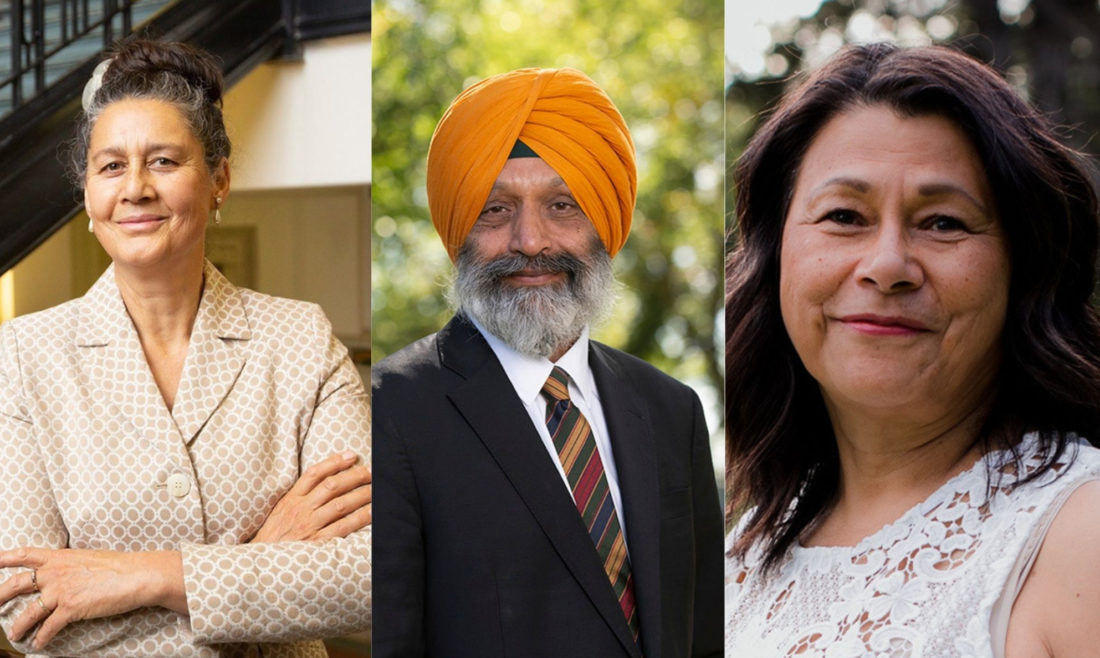
Kelly McInnes, director in talent management and strategic enablement, says that the recent hiring of a new provost and vice presidents at the University of Saskatchewan “[demonstrates] the [university] president’s commitment to EDI.”
University hires in the 2020-21 academic year include provost and vice-president academic Dr. Airini, vice-president research Dr. Baljit Singh, and special advisor to the president on anti-racism and anti-oppression Dr. Verna St. Denis. These positions are filled by two women with Indigenous ancestry and a Sikh Indian man.
St. Denis says having a diverse U of S leadership team is long “overdue and necessary.”
“The community that we live in is diverse. And so … our institution needs to represent that diversity,” St. Denis said.
In Nov. 2020, President Stoicheff unveiled the university’s new equity, diversity and inclusion policy. The policy involved consultations with over 20 different groups on campus. The policy was created to “bring to life” principles of equity, diversity and inclusion, says Stoicheff. An EDI Strategy and Action Plan based on the policy is expected to come out this year.
McInnes says that her office embeds equity, diversity and inclusion throughout the hiring process for university administration positions. She says her office asks about EDI in interview questions, ensures that hiring committees reflect the university community and sets expectations around EDI when working with external search firms.
“It’s not an add-on, it’s not just an interview question… We actually are conscious and deliberate about making sure that EDI is infused throughout our entire process,” McInnes said.
“We’re trying to make it systemic,” McInnes said.
McInnes believes that diversity is important for the university to achieve its motto.
“In order to be excellent, to achieve excellence, we need diversity. You need people that come from diverse cultures,” McInnes said. “If we want to be the university that the world needs, … we actually need this kind of diversity.”
In addition to achieving “excellence,” McInnes says that diversity helps the university in facing challenges like the pandemic because it “signals an openness to ideas.”
“There’s not one thing that is going to help us see our way to addressing the challenges that currently face us in this world. So I think that the diversity of thought, diversity of worldviews, being able to bring different perspectives, is critically important to addressing those big problems, those big challenges,” McInnes said.
The work does not end by adding diverse voices to the university’s leadership though. St. Denis is wary of using the language of diversity, as her work focuses primarily on anti-racism and anti-oppression education. She says emphasizing diversity can be “a way that [the university] can avoid addressing the issue of racism.”
“The language of diversity is what we were capable of as an institution, … that we could use at a particular time in politics,” St. Denis said. “But I think that naming racism is necessary, because in many ways, it’s the issue [that] is the most challenging to address.”
—
Wardah Anwar | News Editor
Photo: (Dr. Airini) Instagram | @usask, (Dr. Baljit Singh) Supplied | David Stobbe, (Dr. Verna St. Denis) Supplied | University of Saskatchewan